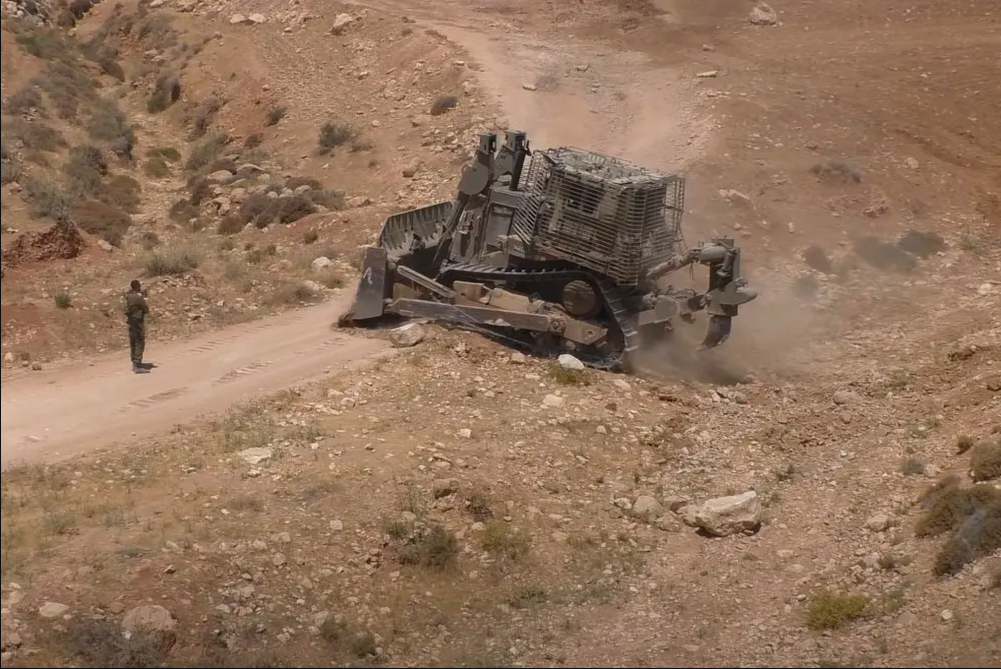
Published 10/25/2024 17:40
In an unprecedented move, more than 130 Israeli reservists have signed an open letter to Prime Minister Benjamin Netanyahu and Defense Minister Yoav Gallant, stating that they refuse to serve if the government continues to wage war in Gaza without seeking a peace agreement. . This is not the first time since the Hamas attacks that reservists have declared their refusal to serve. In May, more than 40 reservists signed a letter after Israeli forces invaded the city of Rafah in southern Gaza. But for this new charter, that number has more than doubled, and the stakes are much higher as Israel wages war on multiple fronts.
On October 7, Yotam Vilk volunteered to protect the Israeli population following a Hamas attack in the south of the country, spending more than 230 days on duty. However, he now believes that the government shows no real intention to find a peaceful solution to the conflict, but rather perpetuates an “eternal war” that threatens not just Palestinians, he says in an interview with CNNbut also the well-being of Israeli society.
The reservists’ letter comes amid an escalation of frustrations with Netanyahu’s leadership, which, according to the signatories, is using the war in Gaza as a political instrument, expanding the destruction and further ruling out the possibility of bringing the 101 Israeli hostages in Gaza home. According to Vilk, growing military pressure is making life in Gaza unsustainable and creating a cycle of violence with no prospect of a solution.
Avoiding talking about numbers
The Israeli army says it is providing care for thousands of soldiers suffering from post-traumatic stress disorder (PTSD) or mental illnesses caused by trauma during war. Reports in the country bring to light cases of suicide by soldiers returning from Gaza. It is unclear how many took their own lives, as the Israel Defense Forces (IDF) did not provide an official number. The Israeli newspaper Haaretz reported that 10 soldiers took their own lives between October 7 and May 11, according to military data obtained by the newspaper.
In a statement in August, the Israeli Defense Ministry’s rehabilitation division said that each month, more than 1,000 new injured soldiers are removed from combat for treatment, 35% of whom complain about their mental state, with 27% developing “a mental reaction or post-traumatic stress disorder.” It added that by the end of the year, 14,000 wounded fighters are likely to be admitted for treatment, approximately 40% of whom are expected to face mental health issues.
In 2021, suicide was the leading cause of death among IDF soldiers, the Times of Israel reported, citing military data that showed that at least 11 soldiers took their own lives that year.
Israeli authorities have closed Gaza to foreign journalists unless under IDF escort, making it difficult to capture the full extent of Palestinian suffering. Israeli soldiers who fought in the enclave say in numerous reports that they witnessed horrors that the outside world can never fully understand. Their accounts offer a glimpse into the brutality of what critics have called Netanyahu’s “forever war,” and the intangible toll it takes on the soldiers who participate.
Bulldozer co-pilot Guy Zaken has spoken publicly about the psychological trauma suffered by Israeli troops in Gaza. In testimony to the Knesset, Israel’s parliament, in June, Zaken said that, on many occasions, soldiers had to “run over terrorists, dead and alive, by the hundreds.” “Everything squirts,” he added. His friend Eliran Mizrahi, 40, a father of four, was one of the suicidal ex-soldiers who also piloted a bulldozer in Gaza.
In this way, the thousands of recruited soldiers, many of them just out of their teens, witness the naturalization of extreme violence that civilians in their country ignore. The atrocious images circulating around the world are omitted from local news and censored by social media. On the one-year anniversary of the October 7 attack, a poll published by the Israel Democracy Institute found that only 6% of Israelis think the war in Gaza should be stopped due to the “great cost in human lives.”
“Red line” and rejection of “religious militarism”
The document was motivated by a strong disenchantment with the political conduct of the conflict and by coexistence with comrades whose motivations included a religious fervor that shocked many of the signatories. Max Kresch, who served on the border between Israel and Lebanon, described the atmosphere in his platoon as “religiously militaristic.” In one reported episode, a colleague stated that he believed it was his “religious duty” to kill Palestinian children, on the grounds that they would become future terrorists. The situation caused Kresch deep discomfort and, ultimately, a rejection of military service which, according to him, strayed from ethics and peace objectives.
Consequences and repercussions of the letter
The refusal letter generated a harsh response from the government, which quickly signaled repercussions against the signatories. Transport Minister Miri Regev suggested that these reservists be detained for opposing military service, declaring that “there is no place for refusals in the army, neither from the right nor from the left”. For many reservists, government pressure is an attempt to silence voices calling for an end to the war, even if this means a break with democratic values and internal dialogue in the country.
Despite the pressure, Vilk reaffirms that his refusal is based on moral and ethical principles, prioritizing an approach that seeks diplomatic solutions, and not the prolongation of the conflict. “I’m more concerned about my moral decisions, my well-being and my ability to look back and believe that I made the right choices and that I was on the right side of history,” he said.
Impact of the letter and repercussions on Israeli society
The reservists’ public letter reveals a growing feeling among some sectors of Israeli society that the war in Gaza has become a political objective, disregarding the lives lost and the trauma generated. For the signatories, the prolongation of the war on several fronts, including operations in southern Lebanon, appears to represent a government strategy that exploits the collective trauma of the Israeli people to justify continued military actions.
By refusing to serve, Israeli reservists hope to open a dialogue about peace and a security policy that prioritizes the lives and dignity of all involved, challenging a militaristic paradigm that, according to them, does not represent the country’s best interests. .
With information from CNN
Source: vermelho.org.br

